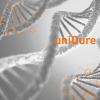
Updates on AMT-130 gene therapy for the treatment of Huntington's disease
10/02/2021
In an official note released two days ago, February 8, 2021, uniQure announced that that the independent Data Safety Monitoring Board (DSMB) overseeing the Phase I/II clinical trial of AMT-130 for the treatment of Huntington’s disease has met and reviewed the six-month safety data from the first two enrolled patients and the 90-day safety data from the next two enrolled patients in the study. No significant safety concerns were noted to prevent further dosing, and the final six patients in the first cohort are now cleared for enrollment. UniQure expects to achieve full patient enrollment in cohort one by mid-year 2021. Currently, two patients have received the experimental molecule and two have received the placebo.
The AMT-130 clinical trial is a Phase I/II, randomized, double-blind, placebo-controlled interventional study to investigate the safety and tolerability, as well as signs of efficacy on movement and cognitive function, of progressively increasing doses of AMT-130 in patients in the early stages of Huntington's disease. The drug will be administered to a total of 26 patients, divided into two groups (cohorts): one consisting of 10 and the other of 16 patients. The first group will receive a lower dosage than the second.
Patients will receive a single administration of AMT-130 through MRI-guided, convection-enhanced stereotactic neurosurgical delivery directly into the striatum, the part of the brain that controls movement and is most affected by the disease.
The multicenter, five-year study is being conducted in the United States.
For more info:
• Read the Press Release
• Read previous articles on the AMT-130 study:
• Consult clinicaltrials.gov website